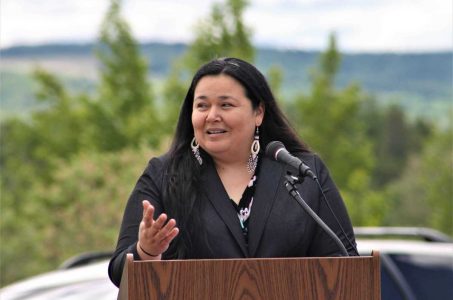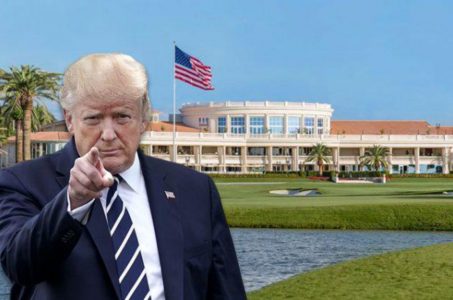Maine Officials Ponder Sovereignty Proposals to Expand Tribal Gaming
Posted on: February 21, 2020, 12:47h.
Last updated on: February 21, 2020, 09:52h.
Representatives of Maine’s commercial casinos continue to oppose a controversial effort to let tribes move from offering bingo and beano to more high-stakes gambling. Tribal leaders this week defended the expansion, saying tribal members are losing much-needed revenue and should have more rights.

The Bangor Daily News reported the comments were made during a hearing held this week by a state committee. It is focused on recommendations from the Maine Indian Claims Task Force, which is arguing for expansion of tribal gaming rights and tribal sovereignty.
The task force advocates for tribes being able to open casinos via compacts with the government, the Daily News said. That way, state legislators could have less say in the approval process.
The task force was set up last year. It has some 22 far-reaching goals.
But recently elected Gov. Janet Mills, a Democrat, wrote last week in a letter that the task force’s recommendations were “sweeping,” the newspaper reported.
Maine’s current rules were spelled out in the 1980 Maine Indian Claims Settlement Act between the state and tribes over land claims. The act prevents the state’s tribes from benefiting from the federal 1988 Indian Gaming Regulatory Act, which basically makes it easier for tribes to open limited casinos in much of the US.
Maine tribes have repeatedly attempted to expand gaming on tribal-owned property. But their beano and bingo games are restricted to weekends during half of the year, the newspaper reported.
In 2018, the Maine Supreme Judicial Court opted not to hear a tribal gaming case, the Daily News said. If the judges ruled in favor of the tribes, they might have gotten expanded gaming.
There are two commercial casinos in Maine. Bangor’s Hollywood Casino is operated by Penn National Gaming, while Oxford’s Oxford Casino is owned by Churchill Downs.
Tribal Bingo Hall Closed in 2015
Competition from the Bangor casino especially hurt the Penobscot Nation’s bingo hall on Indian Island, the Daily News reported. Chief Kirk Francis has complained the tribe was forced to close the bingo hall in 2015.
Penn National is not a constituent,” Chief Francis was quoted by the Daily News. “They are a special interest.”
But Chris Jackson, a lobbyist for Hollywood Casino, said, “We’d prefer no additional casinos in Maine,” the Daily News reported.
He warned competition to commercial casinos could impact the revenues they provide to the state. Money from the commercial casinos goes to cover schools, health care, and local communities.
The state received $58 million from the casinos in 2018, the newspaper reported, citing data from the American Gaming Association.
Oxford County Officials Monitor Tribal Gaming Expansion Plans
Meanwhile, the Sun Journal reported Oxford County Administrator Tom Winsor cautioned this week that a tribal casino could eventually open in the county, given a current legislative proposal.
“It would allow the tribes to declare any land that they purchase tribal land,” Winsor told county commissioners, the Sun Journal reported. “They would be subject to federal rules, not state rules . . . that essentially allow … a gambling casino to be built anywhere that there is private land, and it would be done under federal law.”
Maine has four federally recognized tribes. They include Aroostook Band of Micmacs, Presque Isle, Houlton Band of Maliseet Indians, Houlton, Passamquoddy Tribe of Maine, Princeton and Perry, and Penobscot Indian Nation, Old Town.
In 1999, the Passamaquoddy proposed a 2,000-seat casino in Albany Township. It failed to get legislative support.
Last April, Oxford County commissioners opposed a bill to let tribes open a casino relatively close to the commercial casinos, the Sun Journal said. Other proposals would allow for a casino in southern Maine.
Jack Sours, vice president and general manager of the Oxford, testified last March before the Maine legislature that more casinos could lead to a saturated gambling market.
Related News Articles
Most Popular
Las Vegas Overstated F1 Race’s Vegas Impact — Report
Vegas Strip Clubs Wrestle in Court Over Animal Names
ESSAY: Remembering ‘The Beatles LOVE’ in My Daughter’s Eyes
Most Commented
-
End of the Line for Las Vegas Monorail
— April 5, 2024 — 90 Comments -
Mega Millions Reportedly Mulling Substantial Ticket Price Increase
— April 16, 2024 — 6 Comments -
Long Island Casino Opponents Love New York Licensing Delays
— March 27, 2024 — 5 Comments -
Nearly Abandoned Mall Outside Vegas Soon to Have Only One Tenant
— March 12, 2024 — 5 Comments
















No comments yet